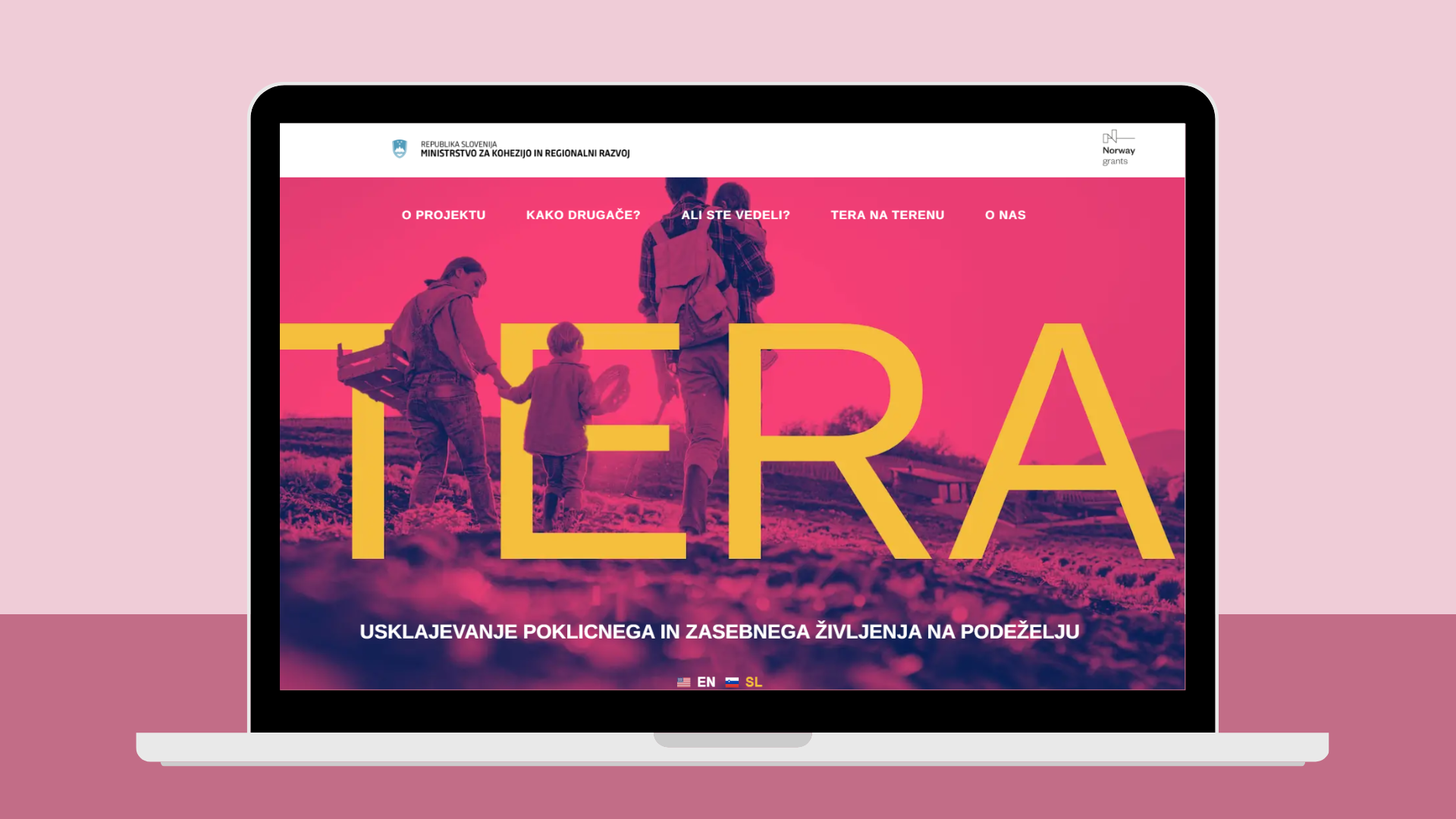
21 June 2023 – In the framework of the TERA project, supported by the Norwegian Financial Mechanism, the project partners aim to improve work-life balance in rural areas. To this end, an innovative and interactive online platform TERA has been launched.
The TERA project addresses the challenges of establishing work-life balance in rural areas, with a focus on raising awareness of the opportunities of work-life balance among women and men in rural areas. The project focuses on overcoming numerous challenges, such as the lower economic independence of rural women, the fragmentation of stakeholders in the region in addressing these challenges, as well as geographical remoteness and limited access to public resources. The project aims to empower men and women in rural areas to effectively address the challenges of work-life balance and to establish greater autonomy and quality of life.
The new online platform plays an important role in presenting the key themes and activities that are being developed within the project. The platform provides information on current challenges related to work-life balance and presents proposals for solutions and actions that can improve gender equality in rural areas. The platform provides practical guidelines for work-life balance in families, farms and work organisations. The platform also offers a wide range of resources for further information and research in this area.
The online platform offers a detailed presentation of the TERA education and awareness-raising programme, which has been developed based on the results of the Survey on Gender Equality in Rural Areas (TERA, 2022) and other projects carried out. The programme consists of six modules, delivered in the form of lectures and accompanying workshops. Each module addresses specific challenges related to the TERA project and can be divided into three main thematic sets:
- Gender stereotypes and roles of men and women in rural areas
- Work-life balance and gender equality
- Challenges and obstacles in finding a balance between professional and private life in rural areas – progress and innovative approaches
The online platform also provides detailed information on the mentoring programme, upcoming workshops and other project activities.
The platform also presents the three levels of work-life balance: the personal level (involvement of men in care work, active fatherhood, fair distribution of household chores), the institutional level (difficulties in accessing public infrastructure) and the legislative level.
The TERA project was developed by the Development Centre Murska Sobota, acting as the project promoter, and project partners Regional Development Agency Posavje, Gender Equality Research Institute Maribor (IPES), the Slovenian Rural Youth Association, the Centre for the Development of Sustainable Society and Inland Norway University of Applied Sciences from Norway.